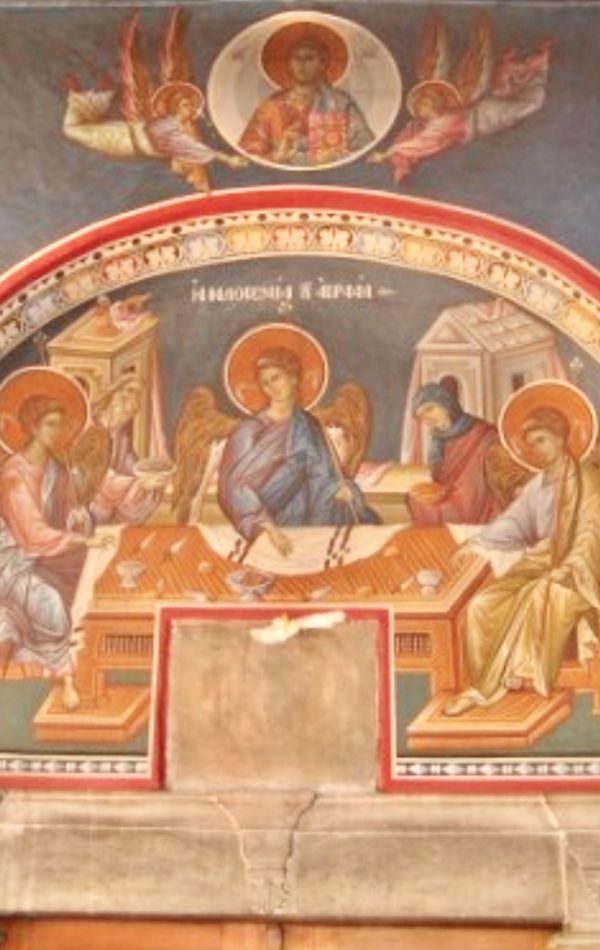Multiplication by Division, in itinerancy
(Mt 15:29-37)
«Man is a limited being who is himself limitless» (Fratelli Tutti n.150).
The Son reflects God's plan in compassion for the needy crowds (v.32).
However, His solution does not fly over us simply drying tears or erasing humiliations.
He invites us to use what we have, although it may seem ridiculous. But teaches that shifting energies creates prodigious results.
This is how we respond in Christ to the world's great problems: by recovering the condition of the 'viator' man - a being of passage, his essential mark - and sharing goods.
Our real nakedness, the vicissitudes and experiences of our many brothers and sisters, who are different, are resources not to be evaluated with distrust, «as competitors or dangerous enemies» of our realisation (FT n.151).
Not only will the little we take with us be enough to satiate us, but it will advance for others and with identical fullness of truth, human, epochal (vv.34.37).
In Mt Jesus is the new Moses who ascends 'the Mount', but to inaugurate an alternative Time, which marks true history; of authentic relationships.
People no longer stay at the bottom of the valley waiting: they gather around Him, coming as they are, with the burden of so many different needs.
The new people of God are not a settled crowd, of the elect, of chosen, and pure.
Everyone brings with them their own path, their own troubles and problems, which the Lord cures - healing not with a solution from above or from without.
In short: another world is possible, but only through breaking one's own [even miserable] 'bread'.
Wise, unbroken, effective solution... if one brings it out from 'within', and on the way - and standing «in the midst» - not in front, not at the head, not “above” (v.36).
The place of God's revelation was to be that of lightning, on a 'mountain' steaming like a furnace (Ex 19:18)... but finally even Elijah's violent zeal had to change mind (1 Kings 19:12).
Even to the pagans, the Son reveals a Father who does not simply erase infirmities, but makes them understood as a place that is preparing personal development, and that of the Community.
It was imagined that in the time of the Messiah, the lame, the deaf and the blind would disappear (Is 35:5ff.). «Golden age»: everything at the top, no abyss.
In Jesus - distributed Bread - an unusual fullness of time is manifested, seemingly nebulous and fragile, but concrete and able to reboot people and relationships.
The Incarnation reweaves our hearts, in dignity and promotion; and it truly unfolds, because it not only drags obstacles away, but builds on them.
And it doesn't erase them at all: it surpasses them, but transmutes them - bringing new life.
Lymph that draws juice and sprouts Flowers from the one muddy, fertile soil, and communicates them.
Solidarity to whom everyone is invited, not only those considered in a condition of perfection and compactness.
Our shortcomings make us attentive, and unique. They are not to be despised, but assumed; they are to be placed in the Son's hands and energised (v.36).
Falls themselves can be a valuable sign: in Christ, they are no longer reductive humiliations, but path markers.
Perhaps we are not utilising and investing our resources in the best possible way.
So slumps can quickly turn into [different, unpackaged] upturns.
[Wednesday 1st wk. Advent, December 4, 2024]












